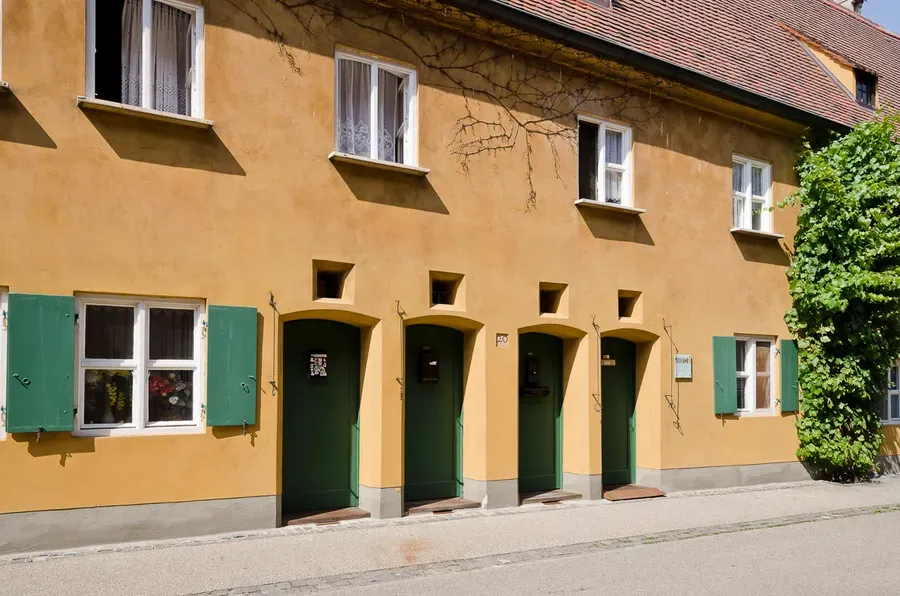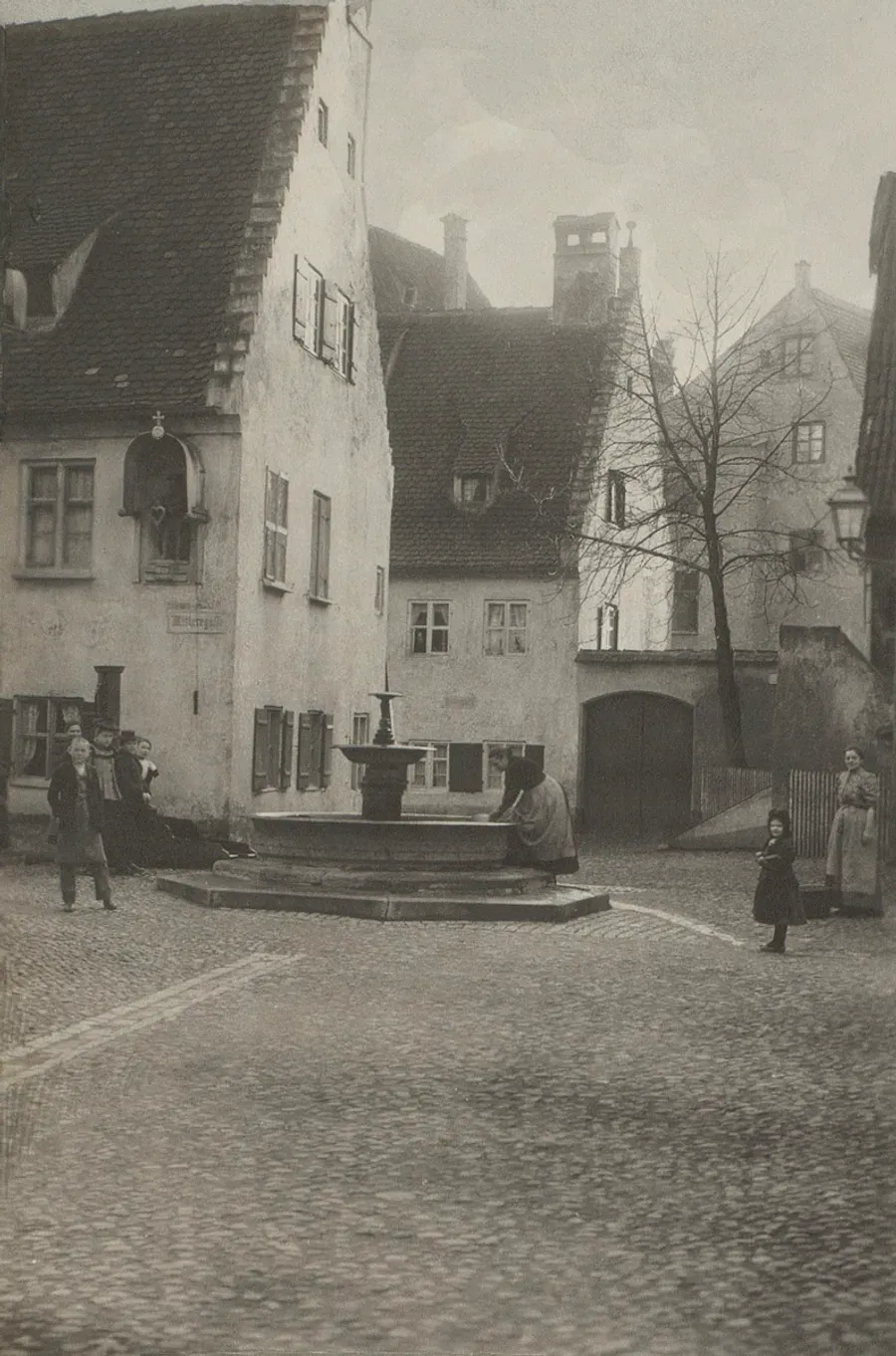Fuggerei: the world's first public housing

In 1521, a German merchant and banker called Jakob Fugger, known as 'the Rich', a descendant of the famous Fugger family of Augsburg, took it upon himself to fund and build the first social settlement in the world.
Known as Fuggerei after its founders' family name, the settlement is a planned gated community of sorts, located within the borders of the southern city of Augsburg in today's Germany. The settlement itself started with 52 houses when on 2nd August 1521, Jakob Fugger signed the deed that brought the estate, and the Foundation that took care of it, into existence. The deed also stipulated an exact definition of a Fuggerei tenant - an Augsburg resident, a Catholic, and a respectable person; and defined the rent due - one Rheinish florin yearly (equivalent to €0.88) and three daily prayers in honour of Jakob Fugger himself.
The idea of creating low-cost housing in 16th century Europe was novel at the time. Poor families with nowhere to go were usually split up and placed in workhouses, which was an even bigger challenge for family members to get back on their feet. In the face of all this, Fugger had the idea of giving people dignity and privacy in a time where vast income inequality was the order of the day.
Jakob Fugger's idea behind the Fuggerei was always that of assistance to those in need rather than charity. This was the core belief that drove the tenants' everyday life in the settlement. In fact, the residents were always chosen based on their skills, whether craftsmen or labourers. Residents had to be willing to work, and many of them had workshops and small businesses within the settlement. This, together with the cheap rent, allowed these residents to get back on track quicker and eventually find a different place to live. While today's residents come from different work backgrounds, the core philosophy of the Foundation in choosing who gets to live in the Fuggerei remains the same.
Funding the settlement has not been cheap. Jakob Fugger had initially designated 10,000 florins to be divided between three different organisations started by the family, which included the Fuggerei Foundation. While the latter was at first financed through interest yields received from the initial endowment, the settlement was later financed through earnings of the Fugger family's estates. Since the 18th century, most of this financing came from investments in forests owned by the family in modern-day Bavaria and Lower Saxony, as well as added endowments from other members of the Fugger family.

Over the years, even as the rent remained the same, the estate increased the number of apartments, opened up a gift shop and a museum to cater to the increasing number of tourists, and even built a bunker during World War II to protect the residents. The latter now showcases the life of the Fuggerei tenants during World War II and their efforts to recover from the destruction this war caused to the settlement.
The destruction of the settlement mainly occured in early 1944, towards the end of the war, after heavy bombing took place in Augsburg. The bombing destroyed around 70% of the settlement, but the 200 residents took shelter in the bunker built just a few months earlier. Following the attack, the residents immediately started to rebuild the Fuggerei, where they ensured that the settlement returned to its former glory and expanded the estate to welcome other residents - an effort which continued well up to the 1970s.
This effort ensured that today, 500 years after the creation of the world's first punlic housing, around 150 people currently live in the 142 apartments in the Fuggerei. While the three daily prayers for Jakob Fugger are not enforced, the community does check with the local parish to ascertain that the tenants are Catholic and residents of Augsburg for at least two years. Factors like age, ethnicity, and marital status, do not matter when it comes to the Fuggerei.
As when the settlement was founded, the residents are also expected to help out with small jobs at the estate, whether as gardeners, watchmen, or at the tourist ticket office. This increases the community aspect of the estate and helps to ensure that no one ever feels alone in overcoming the challenges that they face. One of the more famous residents of the Fuggerei was Franz Mozart, the great-grandfather of the composer Wolfgang Amadeus Mozart. This makes me wonder whether we would have heard the music of the great composer if this housing settlement had not existed in the first place.
Thank you for reading. If you would like to receive similar posts and updates, press 'Subscribe' here.